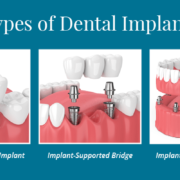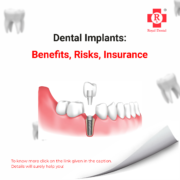Communication is an essential aspect of our daily lives. It allows us to connect with people, express our thoughts and emotions, and build meaningful relationships. However, missing teeth or dentures can impact our ability to communicate effectively, leading to mumbling or speaking with a lisp. Fortunately, dental implants have revolutionized the way we restore missing teeth and improve our communication abilities. With dental implants, you can regain your confidence and eloquence, speak with clarity and enunciation, and express yourself freely without any inhibitions. In this article, we’ll explore the benefits of dental implants for communication and how they can transform your life. So, whether you’re a professional speaker, a teacher, or simply someone who values effective communication, read on to discover how tooth implants can make a significant difference in your life.
Speech Difficulties Caused by Missing Teeth
Missing teeth can lead to speech difficulties that can affect your confidence and communication abilities. The loss of teeth can cause a gap in your mouth, which can affect the way you pronounce certain sounds or words. For instance, the letter “s” requires the tongue to touch the upper teeth, and if there are missing teeth, it can result in a hissing sound or a lisp. Similarly, the letter “f” requires the bottom lip to touch the upper teeth, and if there are missing teeth, it can lead to a whistling sound or a lisp.
However, dental implants can help restore the missing teeth, allowing you to speak with clarity and enunciation.
Moreover, missing teeth can also impact the way you speak by affecting your bite. A misaligned bite can cause difficulty in speaking, especially if the gap is in the front teeth. This can lead to mumbling or difficulty in enunciating certain sounds, which can be frustrating and embarrassing.
Dental Implants Improve Speech and Pronunciation
Dental implants are artificial tooth roots that are surgically placed in your jawbone to provide a sturdy foundation for a replacement tooth or bridge. They are made of titanium, which is biocompatible and fuses with the jawbone over time, providing a secure and stable base for the replacement tooth.
With them, you can restore missing teeth, improve your bite, and enhance your speech and pronunciation. The replacement teeth are custom-made to match the shape and color of your existing teeth, ensuring a natural-looking and seamless smile. Moreover, the implants are placed in the jawbone, providing a stable foundation for the replacement teeth, which can improve your enunciation and clarity of speech.
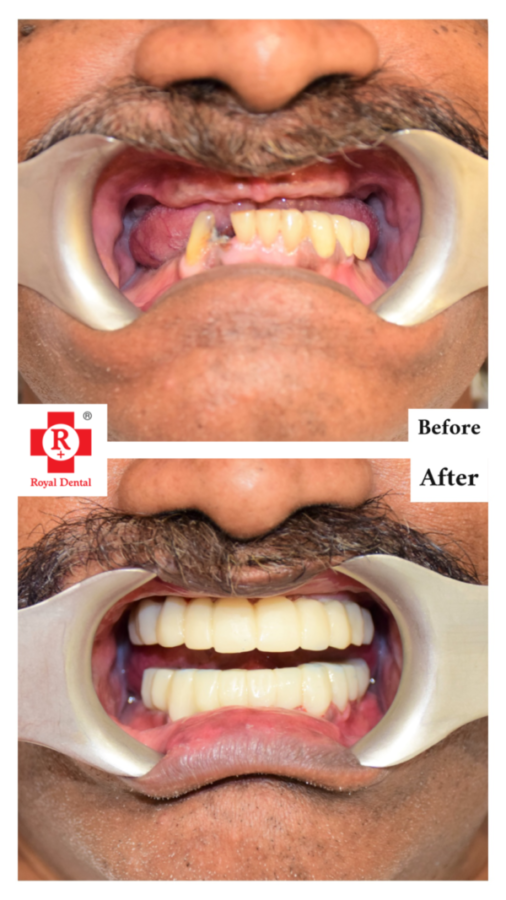
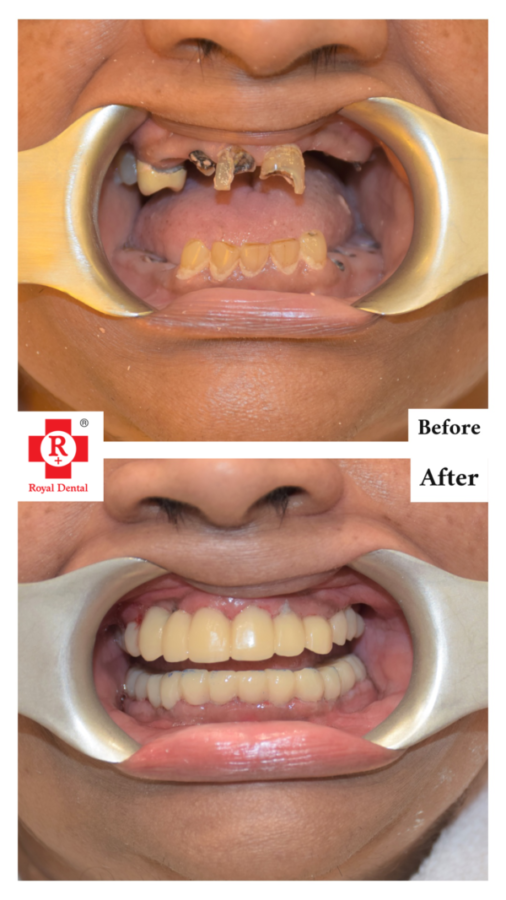
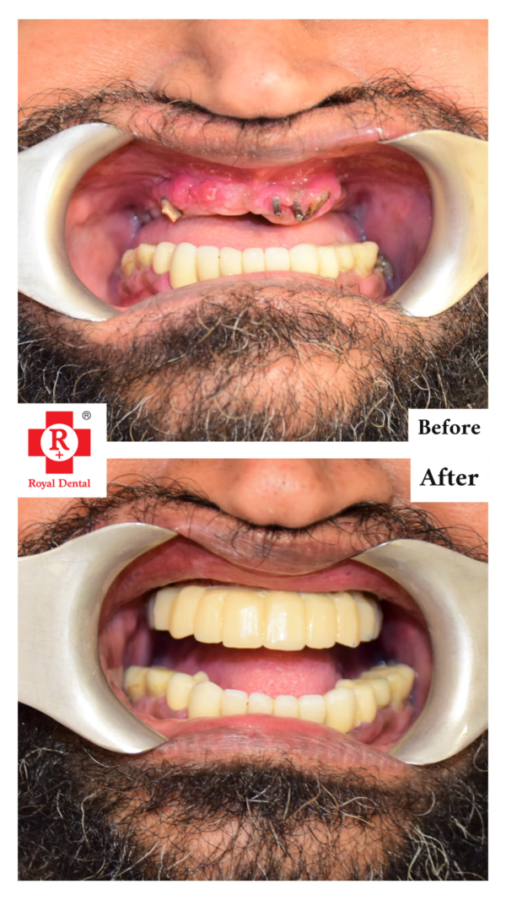
Additionally, tooth implants can help prevent bone loss, which can occur when teeth are missing for an extended period. Bone loss can lead to a sunken appearance in the face and affect the way you speak. Dental implants can stimulate bone growth and prevent bone loss, ensuring that your jawbone remains healthy and strong.
Link between Communication and Dental Implants
Confidence plays a crucial role in effective communication. When you are confident, you can express yourself freely and communicate your thoughts and ideas effectively. However, missing teeth or dentures can impact your confidence, leading to self-consciousness and inhibitions.
Tooth implants can help restore your confidence by providing a natural-looking and seamless smile. With dental implants, you can smile with confidence, knowing that your teeth look and feel like natural teeth. This can boost your self-esteem and improve your communication abilities, allowing you to express yourself freely without any inhibitions.
Moreover, dental implants can provide a long-term solution to missing teeth, ensuring that you don’t have to worry about dentures or other temporary solutions. This can give you peace of mind and allow you to focus on your communication abilities, rather than worrying about your teeth.
Social Benefits of Improved Communication Skills
Improved communication skills can have numerous social benefits, including better relationships, career opportunities, and personal growth. Effective communication can help you connect with people, build meaningful relationships, and understand others’ perspectives.
With tooth implants, you can improve your communication abilities, allowing you to express yourself more clearly and effectively. This can lead to better relationships, both personal and professional, as you can connect with people more easily and understand their perspectives. Moreover, improved communication abilities can lead to better career opportunities, as effective communication is a crucial skill in many professions.
Additionally, improved communication can lead to personal growth and self-awareness. When you can express yourself freely and understand others’ perspectives, you can develop a deeper sense of empathy and compassion, leading to personal growth and self-improvement.
Process of Getting Dental Implants
The process of getting dental implants involves several steps, starting with a consultation with your dentist. During the consultation, your dentist will evaluate your dental health and determine if you are a suitable candidate for dental implants. They will also discuss the procedure, risks, and benefits of dental implants to help you make an informed decision.
If you are a suitable candidate for dental implants, your dentist will schedule a surgery to place the implants in your jawbone. During the surgery, the dentist will make an incision in your gum to expose the jawbone and drill a hole for the implant. They will then place the implant in the hole and close the incision with stitches. Once the implant has been placed, your dentist will attach a replacement tooth or bridge.
For detailed information read on:
Aftercare and Maintenance of Dental Implants
Follow the dentist’s instructions: Your dentist will give you specific instructions on how to care for your dental implants after the surgery. Follow these instructions carefully to ensure the best possible outcome.
Brush and floss regularly: Brush your teeth twice a day and floss at least once a day. Use a soft-bristled brush and non-abrasive toothpaste to avoid scratching the implant or the crown. Floss carefully around the implant and crown to remove any food particles and plaque.
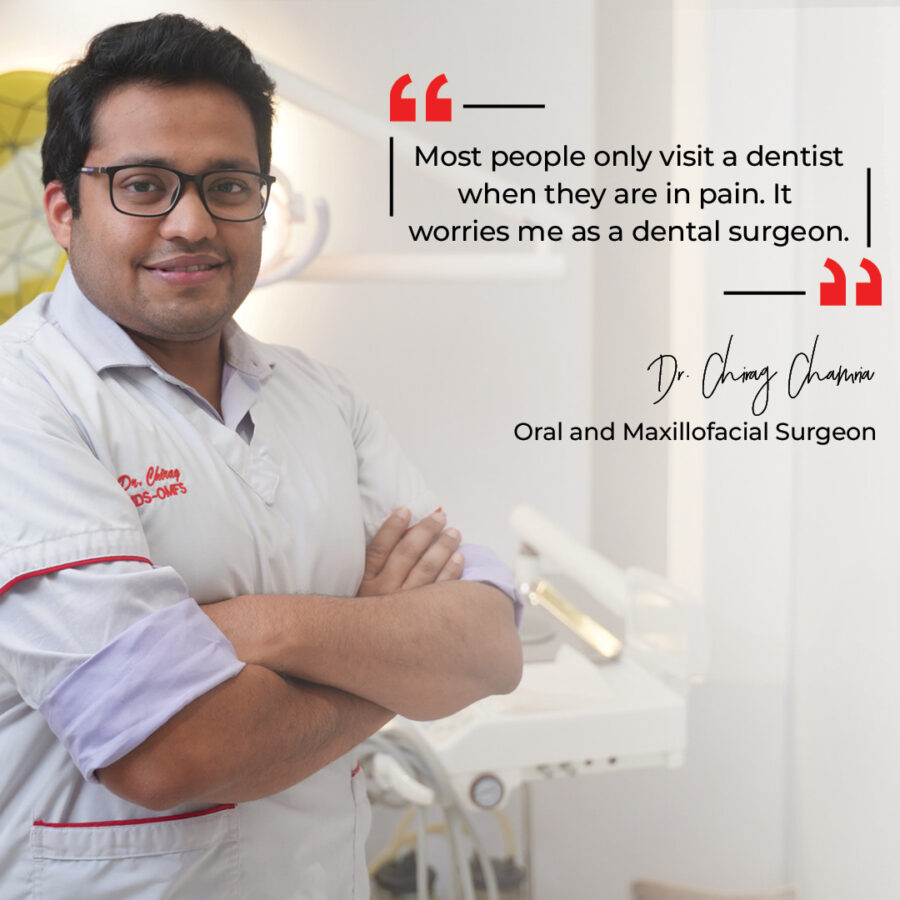

Use an antimicrobial mouthwash: Use an antimicrobial mouthwash to reduce the risk of infection and to keep your mouth clean.
Avoid hard and sticky foods: Avoid chewing on hard and sticky foods such as ice, hard candy, or popcorn kernels. These foods can damage the crown or the implant.
Quit smoking: Smoking can cause implant failure by slowing down the healing process and increasing the risk of infection.
Aftercare and maintenance of tooth implants are crucial to ensure their long-term success.



Regular dental checkups: Visit your dentist regularly for checkups and professional cleanings. Your dentist will check the condition of your dental implants and clean any accumulated plaque and tartar.
Wear a nightguard: If you grind or clench your teeth at night, wear a nightguard to protect your implants and your natural teeth.
Common Myths and Misconceptions on Dental Implants
There are several myths and misconceptions about dental implants that can discourage people from getting them. One common myth is that dental implants are painful and require a long recovery time. However, dental implant surgery is generally painless and requires minimal downtime, allowing you to resume your normal activities soon after the procedure.
Another myth is that dental implants are expensive and not covered by insurance. While dental implants can be costly, many insurance plans cover them, and there are also financing options available to help make them more affordable.
Success Stories with Improved Communication after Dental Implant Surgery
Dental implant surgery can have a significant impact on a person’s quality of life, especially when it comes to communication. Missing teeth or ill-fitting dentures can make it difficult to speak clearly, leading to embarrassment and frustration. However, with the help of dental implants, many individuals have experienced improved communication and a newfound confidence in their speech.
Dr. Chirag Chamria at Royal Dental Clinics has seen many success stories of individuals with improved communication after dental implant surgery. For example, one patient had struggled with speaking clearly due to missing teeth in the front of their mouth. After receiving dental implants, they were able to pronounce words more clearly and felt more confident in social situations.
Another patient had been wearing dentures for years and had difficulty speaking and eating comfortably. After dental implant surgery, they were able to speak and eat with ease, and felt more confident in their appearance and ability to communicate.
Dr. Chamria and his team at Royal Dental Clinics work closely with each patient to ensure that their dental implant procedure is tailored to their individual needs and goals. By using advanced techniques and materials, they are able to create natural-looking and functioning teeth that can improve communication and overall quality of life.
If you are struggling with missing teeth or ill-fitting dentures, dental implant surgery may be an option for you. By restoring your smile and improving your ability to communicate, you can regain your confidence and enjoy a better quality of life. Contact Dr. Chamria at Royal Dental Clinics to schedule a consultation and learn more about the benefits of dental implants.
Conclusion
In conclusion, tooth implants can revolutionise your communication abilities and transform your life. By restoring missing teeth, improving your speech and pronunciation, and boosting your confidence, dental implants can help you speak with clarity and eloquence, allowing you to express yourself freely and build meaningful relationships. So, if you’re struggling with missing teeth or dentures, consider dental implants as a long-term solution to improve your communication abilities and enhance your quality of life.


